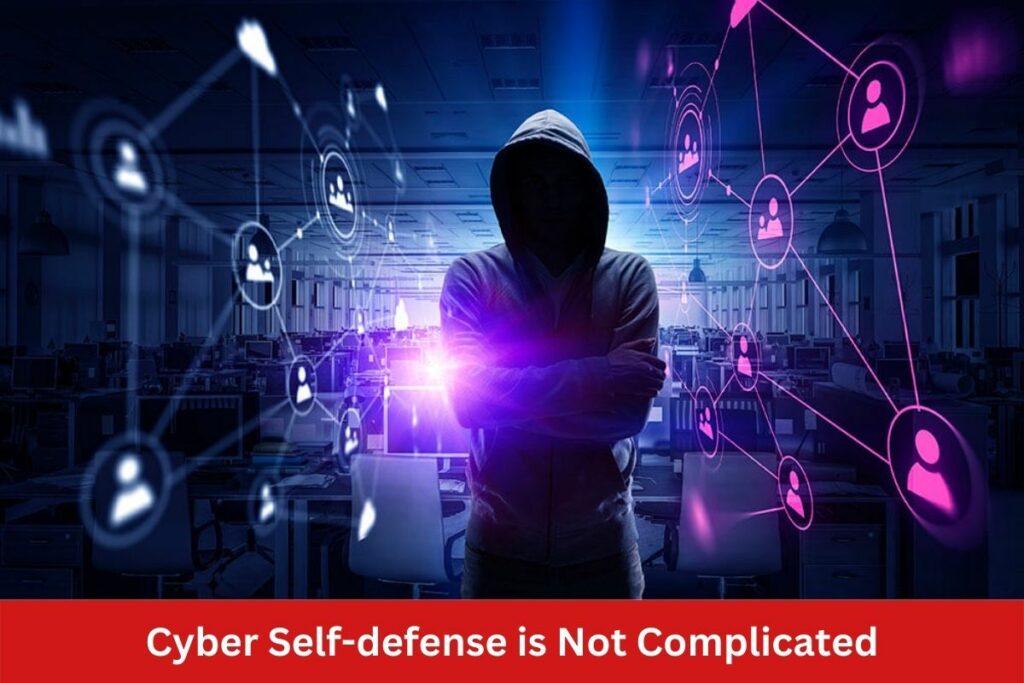A while ago, kids used to grow up on the streets. They played games like football, basketball, hide and seek, dodgeball, and hopscotch. Once in a while, somebody wouldn’t play by the rules, which would lead up to a quarrel, and maybe even a fight.
Getting into a fight used to be a part of life, but luckily, that has changed. Now, people are less likely than ever to get into a physical confrontation.
Games have evolved and transitioned to the digital world. Games like Mortal Kombat, Counter-Strike, and Fortnite allow you to go all out without harming another person.
Another exciting aspect of childhood that has transitioned to the digital world is bullying. Instead of the big kid coming up to the small kid and asking for demands, hackers are now using ransomware to steal information from people who don’t know good cybersecurity practices.
Just like the small kid would learn karate, jiu Jitsu, or MMA, all people now need to know cyber-self-defense to protect themselves against attackers. Let’s get into the basics.
Defense
The best way to win a fight is to avoid it altogether. If a bully approached you in high school and you raised your guard up, they would instantly think that you know martial arts and avoid messing with you. In the digital world, the first line of defense is a VPN.
A virtual private network encrypts your connection and makes it almost impossible for hackers to attack you. Without a VPN, you’re vulnerable to data breaches, exploits, man-in-the-middle attacks, DDoS attacks, and even brute-force attempts to crack your passwords.
A VPN’s purpose is to mask your real IP address and make it look like you’re another person. There is a lot of cryptography involved in that, just like there’s a lot of history behind the way you throw a punch in martial arts.
Of course, you need to realize that VPNs will do nothing for you if you decide to use passwords that are easy to break or if you insert your credit card numbers on shady websites.
Avoiding dangerous situations
A significant part of self-defense is being aware of your surroundings at all times. Navy SEALs get trained to look for the exit whenever they enter a building, and they always sit next to a wall to avoid getting jumped from the back.
When they go back to civilian life, that could become a professional deformation. However, it’s always better to be safe than sorry if something happens.
When it comes to cybersecurity, you can never be too careful. All it takes is one slip-up to lose your identity, earnings, passwords, or all of them together.
Knowing how to recognize phishing scams should be on the top of your priority list. Scammers are using complex social engineering attempts to plant malware and ransomware in your devices.
Whenever you visit a website and you need to insert sensitive data, always check for an SSL certificate and confirm whether the URL is correct.
Attack
When it comes to cybersecurity, if you’re not a professional, the hacker will always be stronger than you. Even if you know how to throw a punch, the hacker will be like a 10th-degree black belt in martial arts. Your attack will never land.
However, there’s one thing hackers are not expecting, and that’s strength in numbers. They’re always looking for the weakest link. If you know how to perform an easy hack, like a man-in-the-middle attack, then you can show it to your friends, and they’ll start learning about cybersecurity too. Eventually, like a ripple effect, the general public will begin following sound cyber-self-defense principles, and hackers will have a much tougher time being successful in their endeavors.
Weapons
Nobody said that fighting is fair. In a fight, you want things to be unfair and for you to have the advantage. The easiest way to do that is to use weapons. Transitioning to the virtual world includes a password manager, an antivirus, and a VPN.
The password manager will serve as a fort that keeps your login credentials secure and unreachable to prying eyes. The VPN software will serve as a tracker blocker, encrypt your IP address, and hide your online presence, making it impossible to locate and trace. Finally, the antivirus will be the last line of defense, scanning every file for potential viruses.
Putting it all together
Just like in real life, focusing too much on one area could lead to neglecting others. If you spend all day researching the newest kinds of attacks, you might fall for a simple scam that worked a few years ago, and someone tried to use it again, as this Google Calendar exploit.
Try to learn a little bit of everything. When it comes to cyber self-defense, it’s much better to be a jack of all trades compared to specializing in one area.
